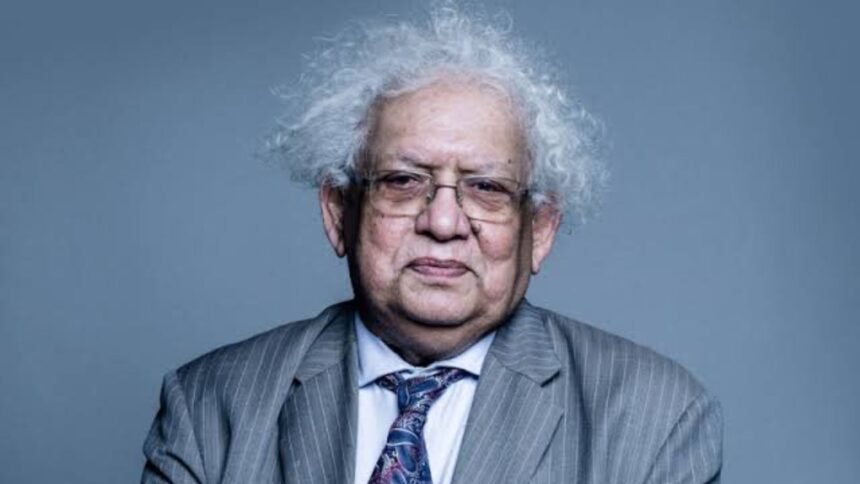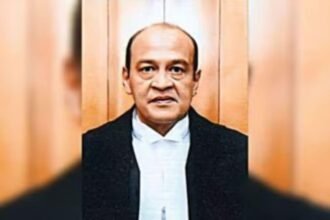Eminent India-born British economist, former Labour party politician, and House of Lords member Meghnad Desai passed away on Tuesday. He was 85. A prominent and well-regarded voice in economics in the UK, India, and beyond, Desai was a widely respected academic who wrote over 200 articles published in academic journals and authored over 25 books.
A Professor Emeritus of the London School of Economics (LSE), where he had a long and distinguished career, Desai also wrote scores of columns in newspapers in the UK and India, including in The Indian Express. In 2008, he was awarded India’s third-highest civilian honour—the Padma Bhushan.
Although a celebrated economist, Desai’s writings and commentary spanned varied subjects—economics, politics, political and social economy, history, sociology, international affairs, and even cinema. In fact, Desai reportedly counted his biography of the legendary actor Dilip Kumar—Nehru’s Hero: Dilip Kumar in the life of India—as his “greatest achievement”. Desai was an avid watcher of old Hindi films, and also had a passion for cooking.
After learning of Desai’s passing, Prime Minister Narendra Modi took to social media platform X to express his condolences.
“Anguished by the passing away of Shri Meghnad Desai Ji, a distinguished thinker, writer and economist. He always remained connected to India and Indian culture. He also played a role in deepening India-UK ties. Will fondly recall our discussions, where he shared his valuable insights. Condolences to his family and friends. Om Shanti,” Modi posted on X.
Sanjeev Sanyal, Member of Prime Minister Economic Advisory Council, wrote on X, “Very sorry to hear that eminent economist Meghnad Desai has passed away. I had known him for over two decades. He was always cheerful and open to new ideas. I will cherish the many long discussions and debates that we had over the years. Om Shanti.”
Born on July 10, 1940 in Vadodara to Jagdish Chandra, a civil servant, and Mandakini Desai a homemaker, Desai grew up with three siblings. He earned his BA in 1958 and MA in economics in 1960 from the University of Bombay, after which he bagged a scholarship to the University of Pennsylvania, where he completed his PhD in Economics in 1963.
Story continues below this ad
Desai, also well-known as Lord Desai due to his membership of the upper house of the British parliament, taught economics from 1965 to 2003 at the LSE. He was appointed as a lecturer at the LSE in 1965, and became a Professor of Economics there in 1983. Desai went on to head LSE’s Development Studies Institute from 1990 to 1995, and established and led the LSE Centre for the Study of Global Governance. During his time at the LSE, Desai researched and lectured on a variety of subjects—Marxian analysis, applied econometrics, Indian development and reform, poverty, globalisation, and the role of private markets.
In 1971, Desai joined the British Labour Party and was elevated to the House of Lords in June 1991. He was Chairman of the Gandhi Memorial Statue Trust which helped erect the statue of Mahatma Gandhi in London’s Parliament Square. In 1991, he was created a life peer as Baron Desai St Clement Danes in the City of Westminster. In 2020, Desai resigned as a member of the UK’s Opposition Labour Party over its failure to effectively tackle antisemitic racism within its ranks.
He authored numerous books, the most recent being The Poverty of Political Economy: How Economics Abandoned the Poor (2022). His other notable books are Marx’s Revenge: The Resurgence of Capitalism and the Death of Statist Socialism, Rethinking Islamism: Ideology of the New Terror, The Route to All Evil: The Political Economy of Ezra Pound, a novel Dead on Time, and The Rediscovery of India.








